I recently had the pleasure of being interviewed over on The Uninvisible Pod, a podcast series hosted by Lauren Freedman. She herself lives with depression, anxiety, Hashimoto’s Disease and sleep disorders, since she was a teen. Her podcast features people who live with various chronic illnesses, their loved ones, caregivers, experts and more. It touches on their coping strategies, life experiences, healing modalities, and more.
I loved that her podcasts are so well organised, with key takeaways, key links, an overview and everything stated upfront. The images she creates and colours used are all so lovely to boot!
Pin to Your Podcasts & Chronic Illness Boards:
What I Share in This Podcast Interview
In this podcast interview, I chat about how it all began for me on this chronic illness journey – with a mini stroke at 14 – and how I’ve evolved as a person throughout the past 20 years. From swearing that I would fight chronic illness until the day I die, to slowly learning that there is so much freedom in acceptance. I’ve been through life and death situations numerous times, and each time it’s a little different. From quick near death experiences, to long drawn out ones for contrast.
Some Key Life Lessons on Chronic Illness, Which I Share on the Podcast:
1. Trust your body and believe in your pain. Don’t let doctors brush you off, and seek help immediately. Waiting for two days before going to the Emergency Department nearly cost me my life, and did permanent damage to my body.
Pin to Your Self-Awareness & Self-Care Boards:
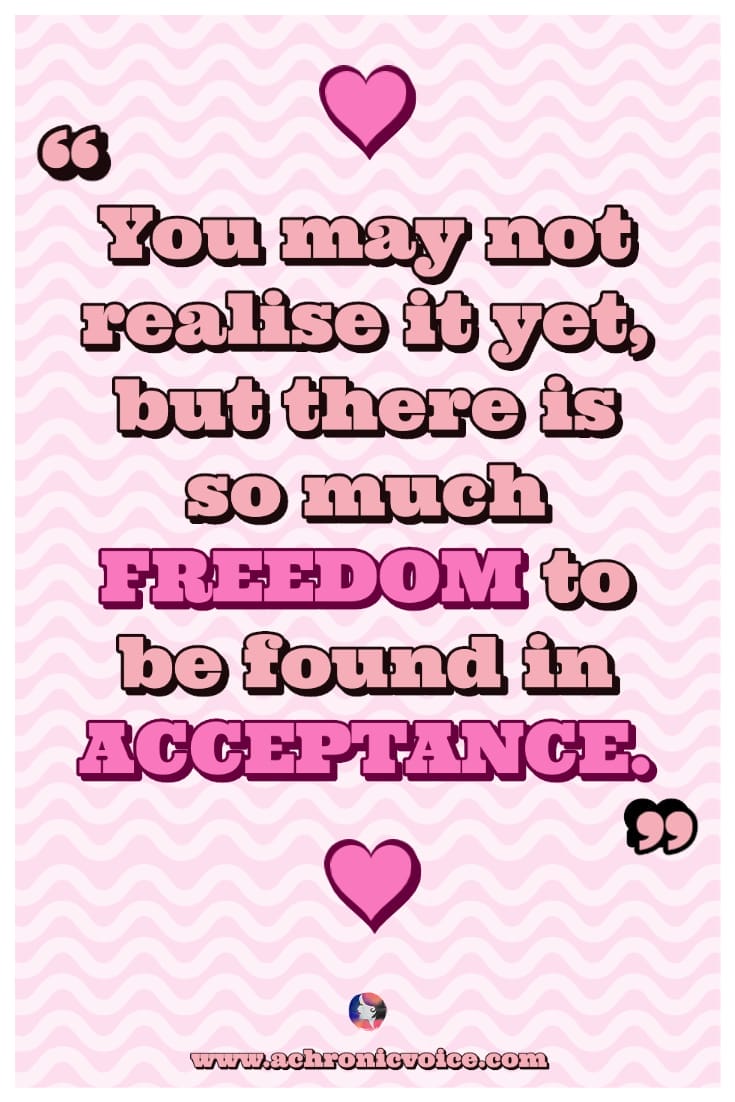
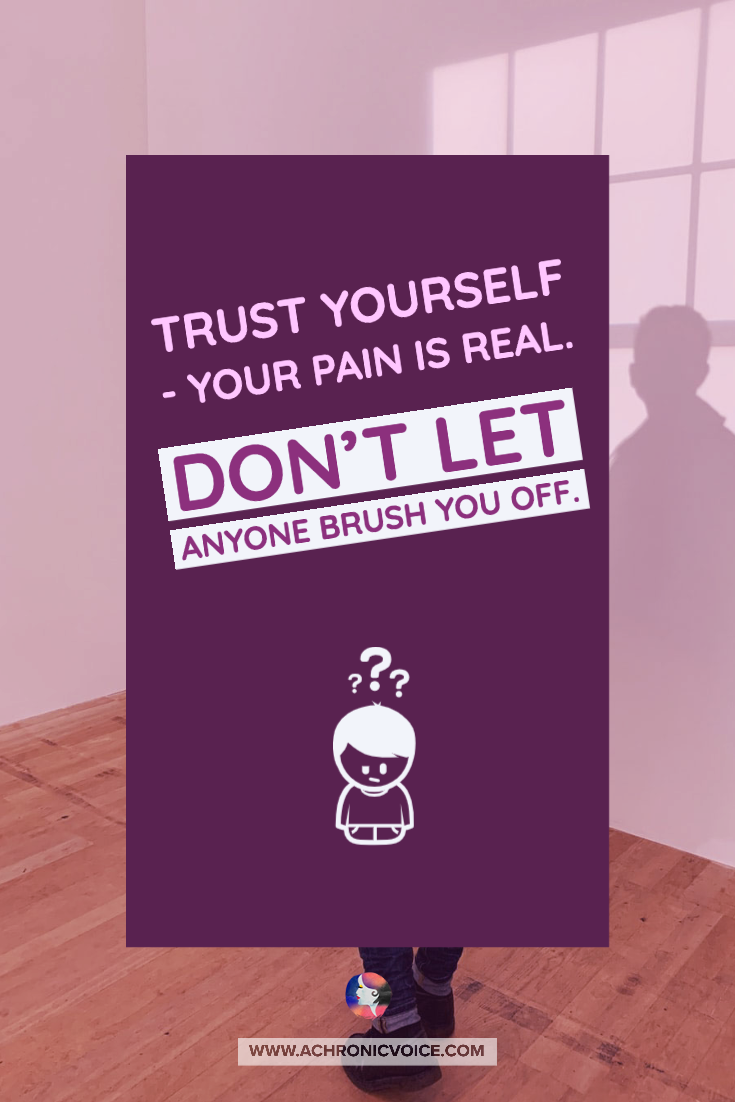
2. Your doctors need to work together as a team, and be for you, not against you. You are in charge of your body and always have the final say. Doctors are there to guide you with their knowledge, and should be willing to communicate with each other in a bid for answers; the body works as a whole and not separate parts removed from each other. If you don’t like your doctor, fire them – seriously. Chronic illness is for life. You want doctors who are for you.
Pin to Your Healthcare & Chronic Pain Boards:
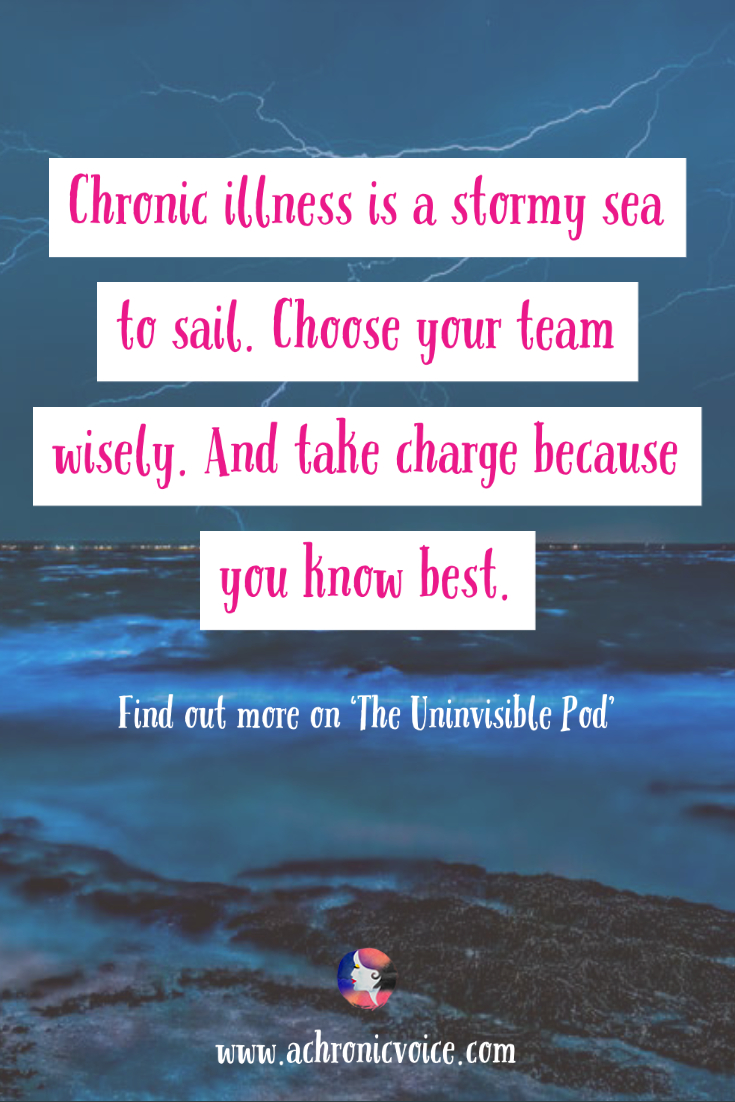
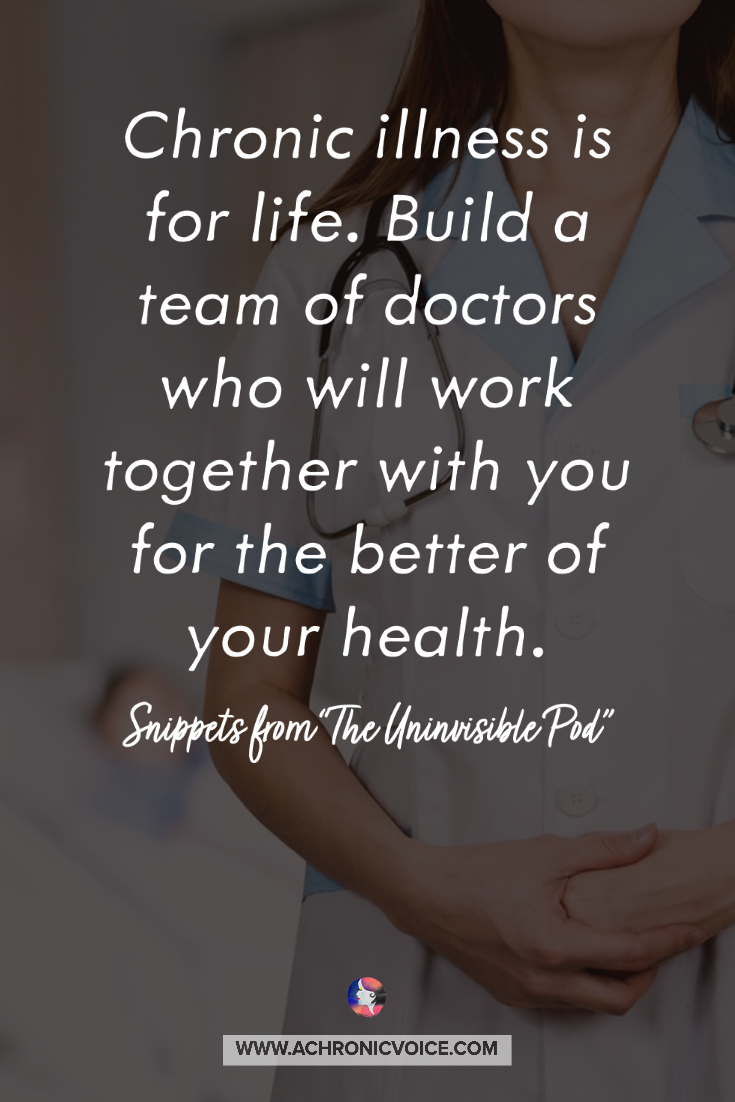
3. Don’t be afraid or hesitant to ask for help. When I finally learned to let my pride go (and this wasn’t an easy thing – of all the seven deadly sins I would have said that pride was my biggest one), there was once again, so much freedom to be had.
Some tasks that can really eat into your limited energy bank, such as picking something up from the store, or even opening a water bottle, are almost nothing effort-wise for others. Let them help you. Let them be a real part of your life. Vulnerability is what connects us as human beings, and there is so much joy to be had in allowing for that to happen.
Pin to Your Chronic Illness & Self-Care Boards:
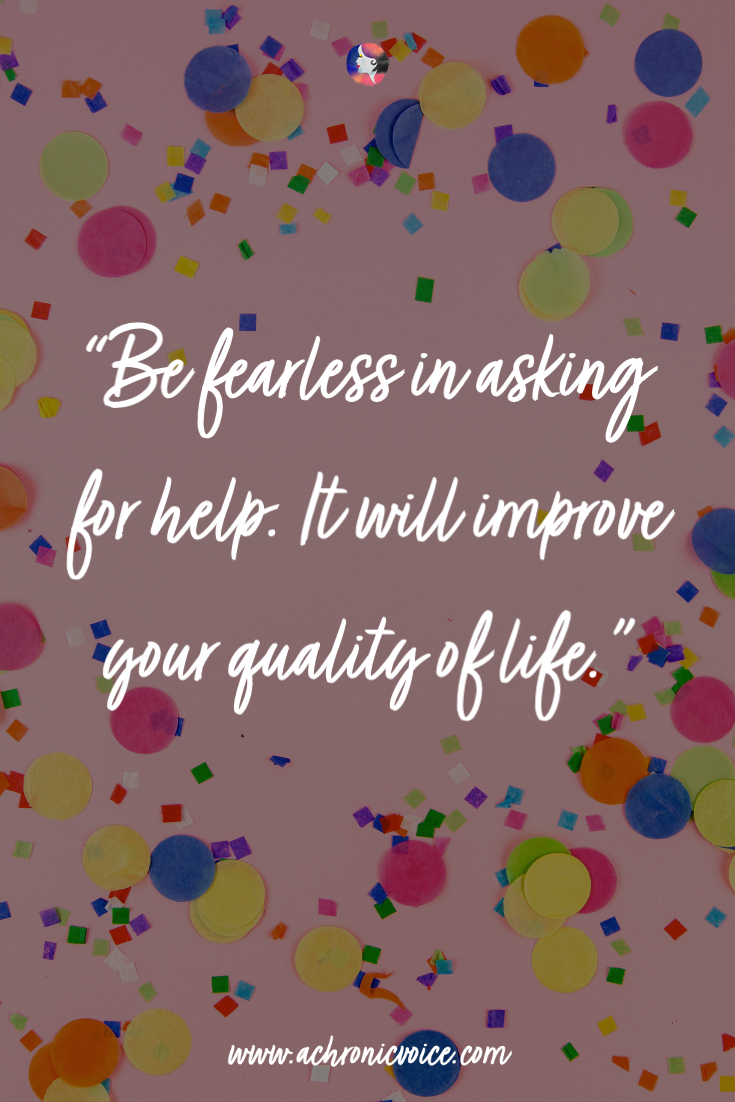
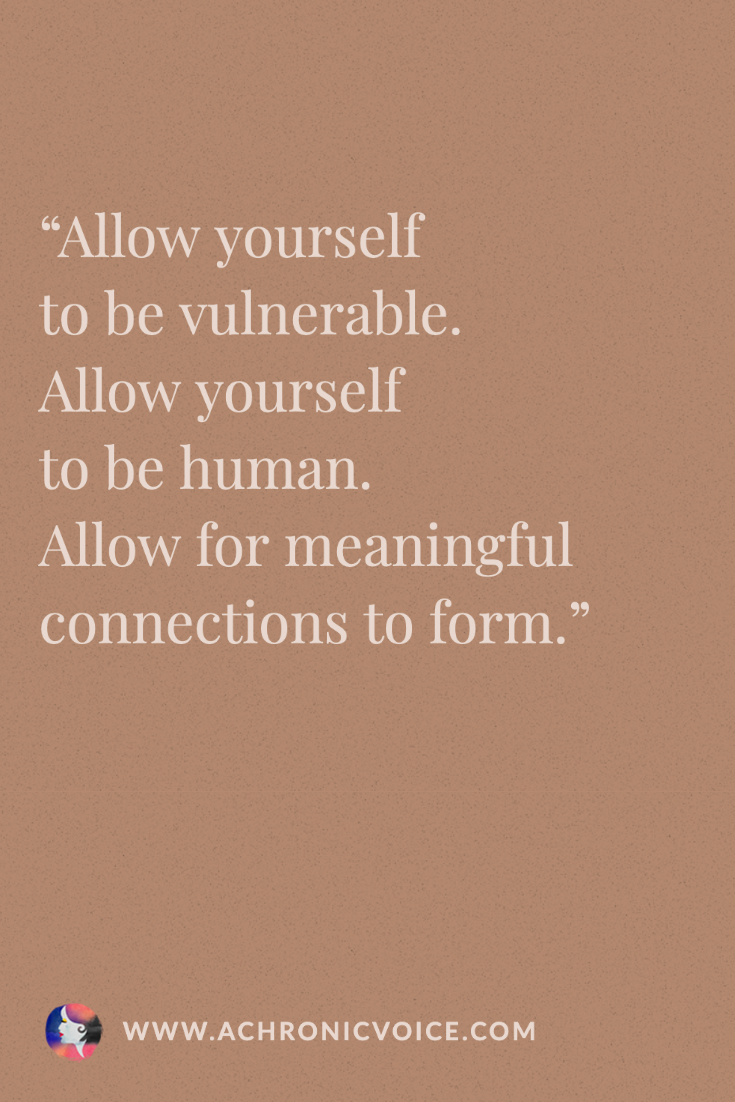
4. Sometimes chronic pain isn’t the worst part about living with chronic illness. The inevitable mental health issues, isolation, lack of support and understanding can really take a toll, too. Pay attention to all aspects of your wellbeing, and not just the physical.
5. I learned that mental health matters so much more than I had imagined, especially coming from an Asian culture where there’s a lot of stigma behind it. Whilst it’s common to see a psychologist even for a ‘normal’ person in the U.S., in Asia people don’t go to one unless they’re ‘mental’ or in ‘deep shit’. It’s an act for the hopeless, the losers, or the pathetic.
It took me 10 years to finally insist on psychological help, and it literally turned my life around. Now I advocate for all who have a chronic illness, and even their caregivers or family members, to have a psychologist as part of their healthcare team. In fact, I even think it’s essential to have a psychologist right from the beginning of a diagnosis (or undiagnosis).
Pin to Your Chronic Illness & Mental Health Boards:
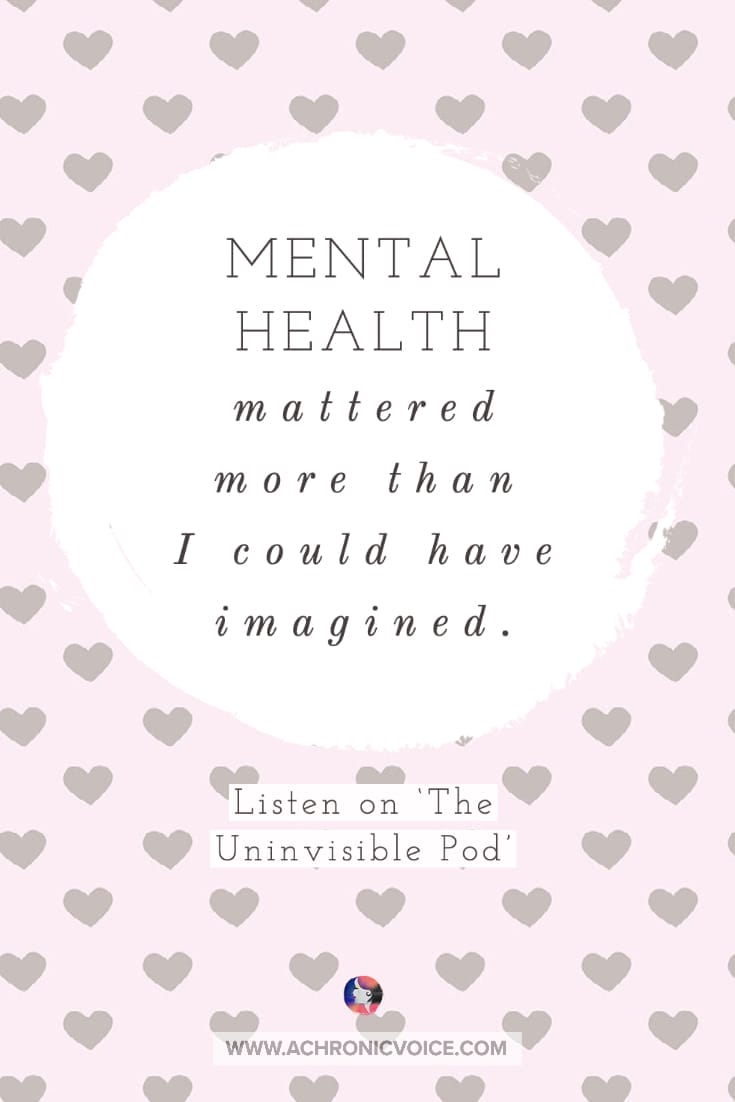
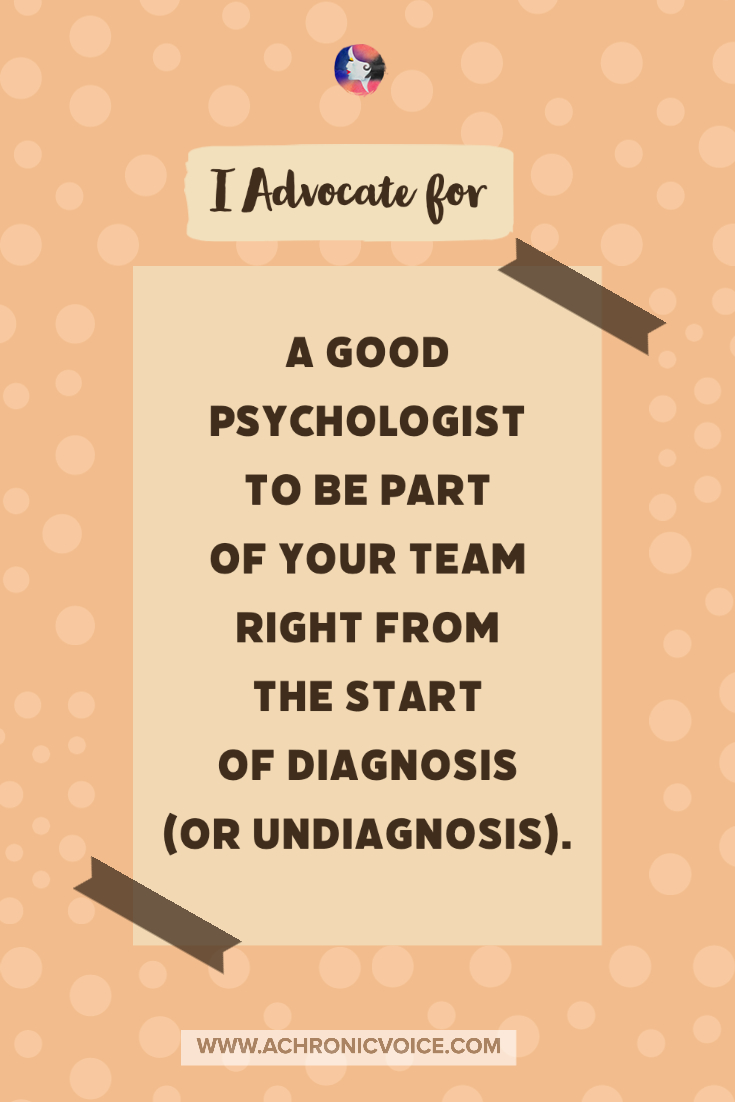
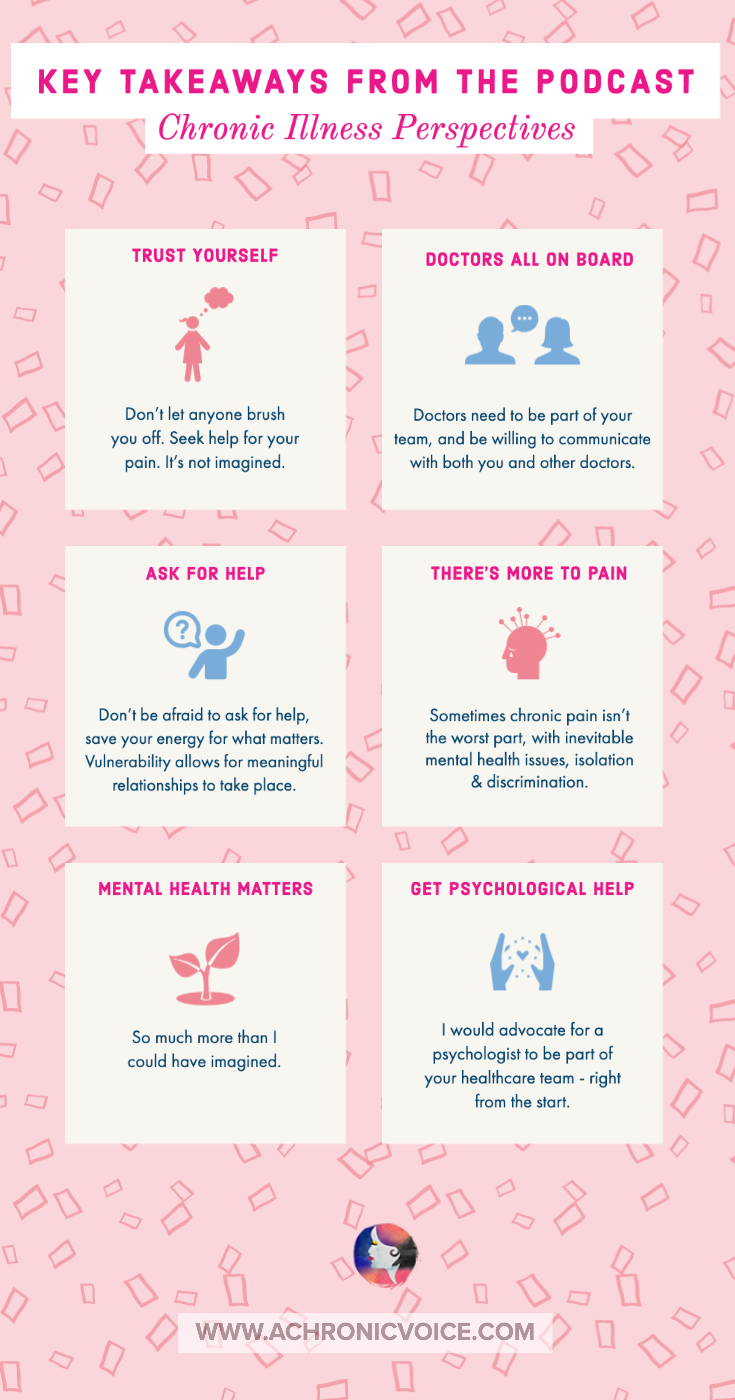
I didn’t realise that our conversation had lasted for a whole hour, but I had a good time! Thanks Lauren for having me on the podcast, and I hope you enjoy listening to it, too. Don’t forget to check out the many other interviews and stories of others with chronic illness, too!
Click to Listen to the Podcast
*Note: This article and the podcast are meant for educational purposes and is based on the author’s personal experiences. It is not to be substituted for medical advice. Please consult your own doctor before changing or adding any new treatment protocols.
If you liked this article, sign up for our mailing list so you don’t miss out on our latest posts! You will also receive an e-book full of uplifting messages, quotes and illustrations, as a token of appreciation!
Pin & Help to Share the Post & Podcast!
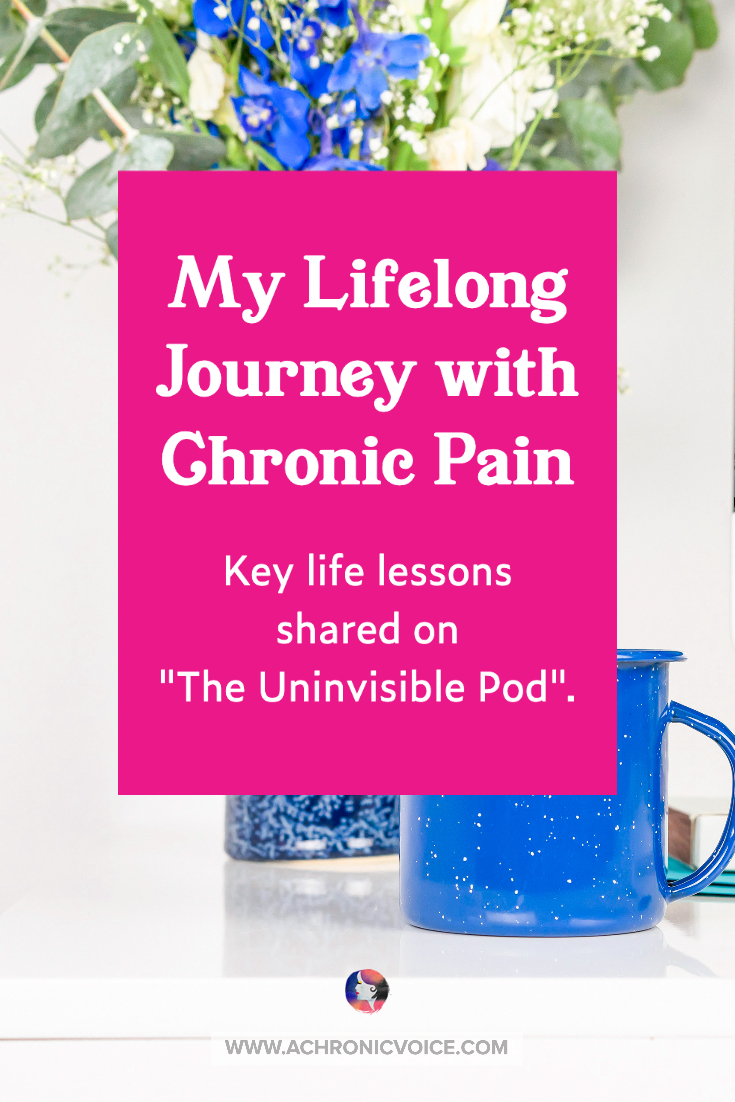
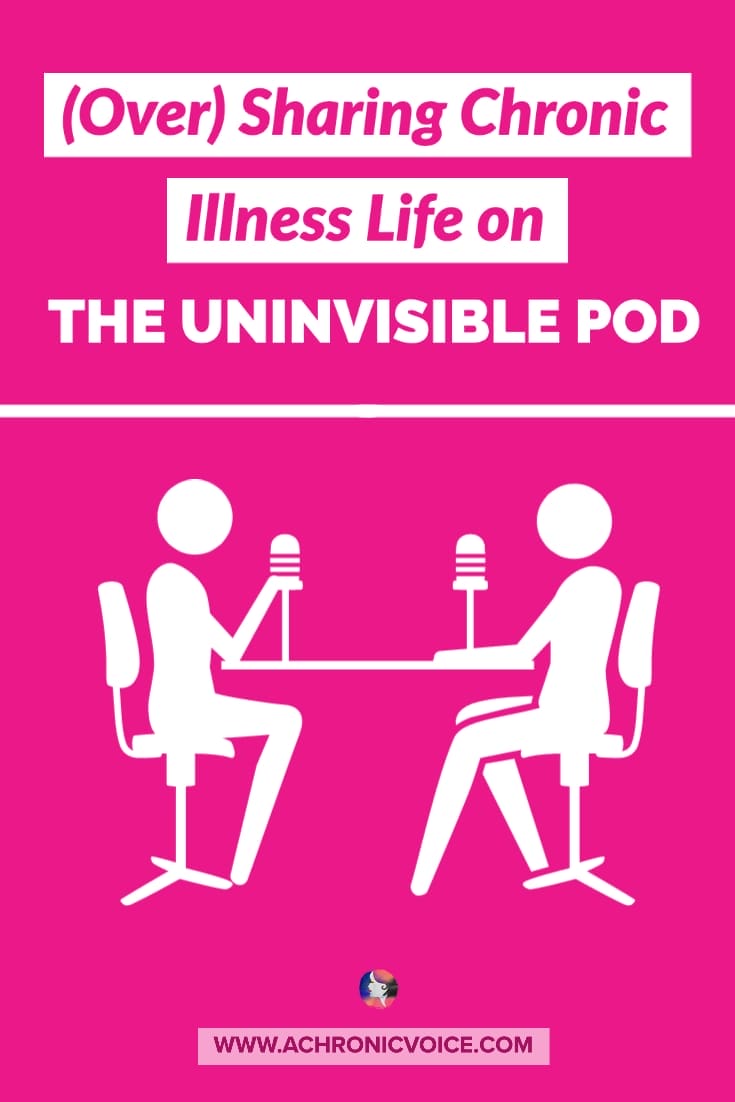
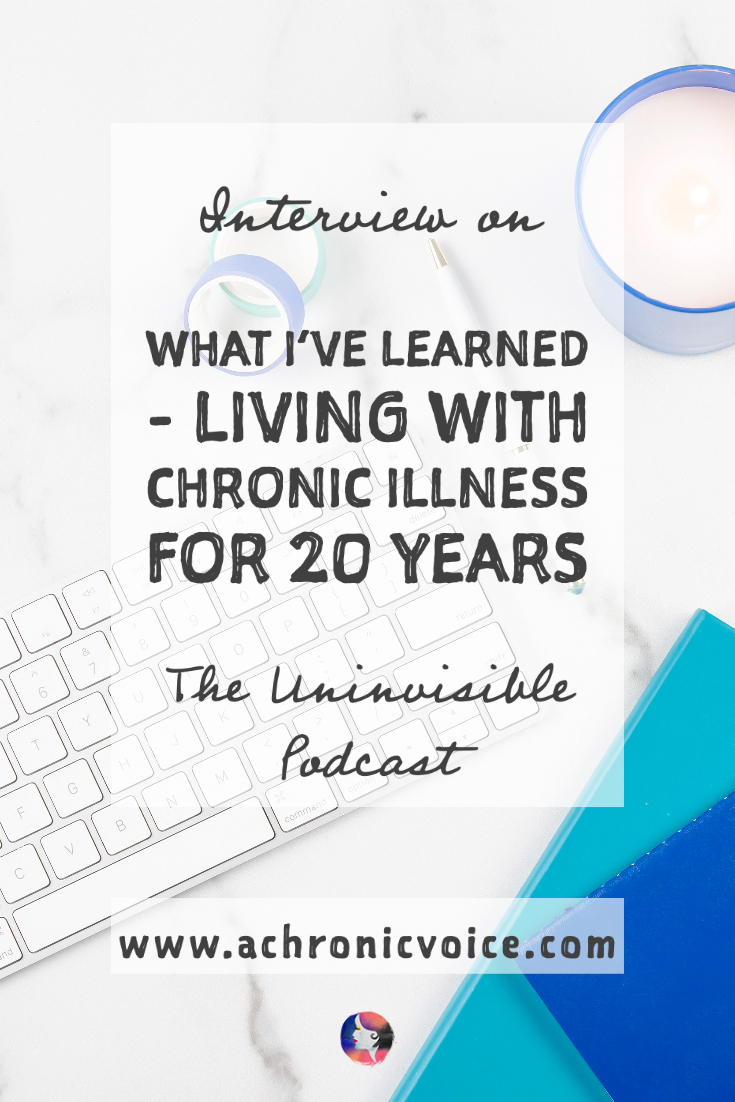
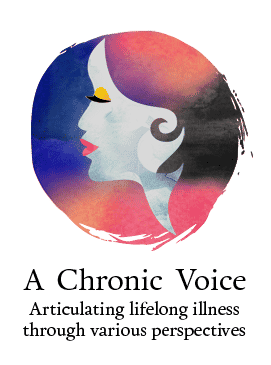
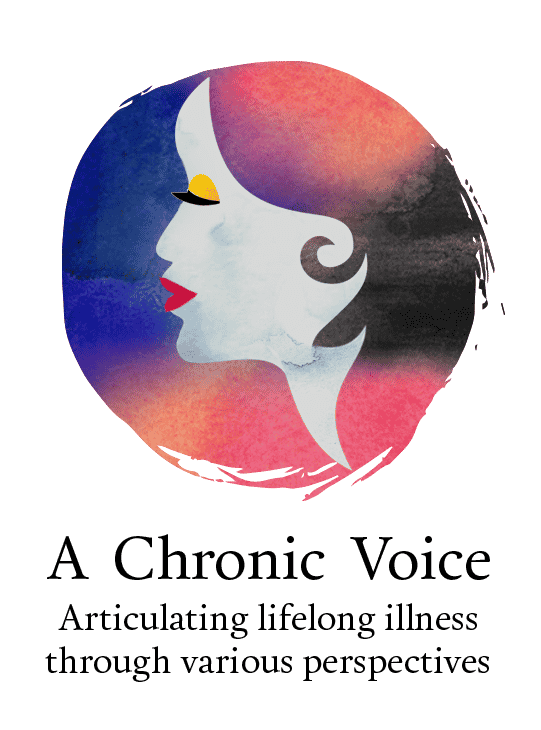
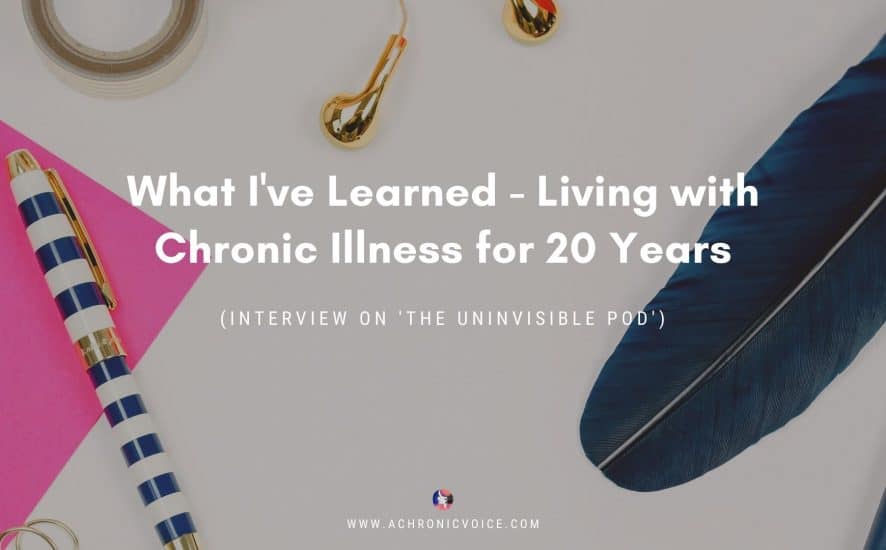

So many great lessons in one little podcast! One of the things that blows me away is how much chronic illness initially affected my mental health, but how valuable the lessons I’ve learned since have been. In some ways, it really challenges us to be better, more well rounded human beings. In order to survive, we can’t afford to let anything slide when it comes to developing healthy ways of coping and looking at our lives, along with many other life skills. You did just a great job of demonstrating this.
Thanks Michelle! Chronic illness does impact one’s mental health to a LARGE degree, and is sorely underestimated, imho. I really do believe a therapist needs to be part of the team right from the get-go 🙂
I love that your main doctor is like a dad or grandpa to you. What a comfort to know that someone understands all that you have been through and all that you deal with has your best interest in mind. I sure hope he will be around for a long time.
Hi Katie, yes he’s like a father to me, and probably knows more about me than even my own parents in certain ways lol. I’m really fortunate to have had him from the get-go.
I heard this whole podcast when you had posted it earlier and it was so relatable. I also think it takes a lot to speak about yourself so openly so thank you for doing that.
And your finally point in this post – O’ it’s so true! We Asians really have quite the stigma against mental health – that’s why the suicide rates are so high! But I am really happy the conversation is happening, just hope it brings about the changes that are needed to encourage people to talk about their troubles.
Yes like you said in India, it really is crazy high. The stigma is real, and needs to be addressed. It will take time, but we will get there 🙂 Open conversation really is so important, as are advocates who are willing to take the brunt and speak up for many others who can’t.
Great post … and a great interview! Loved learning more about you and your illness journey. Thanks for all the inspiring words!
Sue
New Book: Finding a New Normal: Living Your Best Life with Chronic Illness
Thanks for your encouragement, Sue. I appreciate it! 🙂
I can relate to your story Sheryl, I had to let go of my pride and learn to ask for help. My culture believes seeking help from a psychologist is a sign of weakness.
Hi Raina, my, totally the same here. Weakness or a mental flaw. Like there’s something wrong with you. I’m glad you too learned how to let go of unnecessary pride. There really is a fine line between dignity and ego 🙂
I’ve never heard of this podcast before, i will have to add it to my list. I loved how you talked about your journey from “I will fight this every day” to acceptance. I think everyone has to eventually make that journey if they’re going to ever feel peace.
Thanks Shelley, it’s a good series with many various perspectives. As you know, I love that 🙂 Yes that was probably the toughest lesson of my life. It has everything to do with my self esteem, self image, who I am or thought I am as a person, and so much more. I’m glad I made it through and chose life 🙂
Completely agree with this Sheryl! I think we all learn so much about ourselves and how to navigate healthcare over time, although I think I still need to learn how to ask for help a bit more often!
Thanks Claire. These are definitely tough life lessons and hard questions to ask, often with no answers. And despite our different diagnoses, there are so many similarities as well. Being ill really brings you face to face with just how vulnerable we truly are as a species 🙂